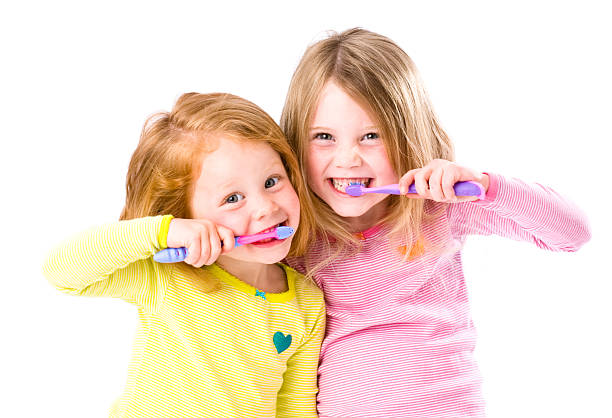
When it comes to maintaining healthy teeth, everyone knows the basics: brush and floss twice a day and avoid sugary treats. However, as with most professional advice, it’s easier said than done.
Why do so many of us still need dental treatment when we follow these instructions? There is more to preventing gum disease and tooth decay than the general guidelines may suggest. Here’s what you need to know about brushing.
The process of creating cavities
Just like any other living thing, sugar is a favorite food of bacteria. Sugar consumption by bacteria produces acids that can demineralize tooth enamel, leaving white chalky stains and microscopic holes that are not visible to the naked eye. If this process isn’t stopped or repaired, these holes can develop into cavities.
Keeping your skills up-to-date
There is a science behind the techniques recommended for brushing teeth, which many people are unaware of. The way you do it makes a big difference in the results of your overall oral health. By brushing your teeth, you remove food particles and sticky bacteria buildup, more commonly known as plaque. In between your teeth and along your gum line, plaque forms as a result of bacteria, acids, and food remnants adhering to your enamel. In spite of the fact that this formation occurs naturally on the teeth after eating, it does not cause any damage until it reaches a certain level of maturity. A fair assessment would be that plaque takes at least more than 12 hours to develop and cling to the tooth.
Make your teeth a priority
- Brush your teeth for two minutes at a time
- It is recommended that you brush and floss at least twice a day—once in the morning, once at night after you have finished eating for the day, and if possible, after every meal. If you brush frequently, you may be preventing the bacteria from developing to the point where the most acid is produced and established.
Electric vs. Manual Toothbrushes
Are electric toothbrushes more effective than manual toothbrushes? Bottom line: it’s important to brush! If used correctly and efficiently, electronic toothbrushes can be more effective. It’s more about technique and thorough cleaning. A small toothbrush head tends to reach those hard-to-reach and awkward areas in the mouth. The best way to scrub surfaces without injuring sensitive gums or teeth is by using soft bristles.
Fluoride Toothpaste is Required!
When it comes to brushing success, the type of toothpaste used is very important. It is best to focus on fluoride as the key ingredient. According to research and evidence, fluoride, whether in toothpaste or mouthwash, will help prevent tooth decay because it can remineralize areas damaged by plaque and strengthen teeth. To achieve maximum benefit, dentists recommend toothpaste with 1350–1500 ppmF (parts per million fluoride concentration). It is important for parents to look at the back of the toothpaste tube, as some children’s toothpastes are not strong enough to provide the full benefits. Some pediatric dentists prescribe fluoride toothpastes with higher concentrations of fluoride for children who are at a higher risk for tooth decay. You may even be advised to use disclosing tablets available at your local supermarket. Plaque-coloring tablets or disclosing tablets highlight areas that a person may be missing while brushing and make them easier to see. Since plaque is tooth-colored, it is usually hard to see, but it can make your teeth look dull instead of shiny.
Brushing before bedtime is essential
It is common for individuals to produce less saliva at night than during the day. Due to this, a person’s teeth are less protected from saliva and are more susceptible to acid attacks while they sleep. Thus, nighttime brushing is the most important, and it is imperative to remove food from one’s teeth before bedtime in order to prevent plaque from feeding overnight. Fluoride toothpaste and mouthwash should be used at night so that they can do their job without interruption. When you have finished brushing, do not eat or drink anything afterward. This will allow the fluoride-protective minerals to be absorbed into your teeth. It can reduce tooth decay by up to 25%.
Avoid the ‘Free’ sugars
According to the World Health Organization and the NHS, “free” sugars should make up less than 5% of your daily calories. ‘Free’ sugars are chemically enhanced components added to foods by manufacturers. As a result of these additives, excessive tooth decay is caused. They are often supplemented with intrinsic sugars naturally found in fruit, honey, syrup, juices, etc.
Sugar consumption is affected by how much and how often you consume it. A tooth may be exposed to approximately four sugar hits per day before irreversible damage occurs. Fortunately, fluoride toothpaste and saliva can help your teeth recover from the early stages of these attacks. Maintaining a balance between sugar on one hand and fluoride toothpaste and proper tooth cleaning on the other is like balancing scales.
You can reduce your sugar intake by giving up adding sugar to hot beverages and limiting snacking. If you brush your teeth twice daily with fluoride toothpaste and spit instead of rinsing, the fluoride will bathe your teeth throughout the night. Do not eat or drink anything for thirty minutes after brushing your teeth in the morning, and limit your sugar consumption to four times per day.
Our pediatric dental office cares about your child’s oral health. Our goal is to ensure that they grow up with a healthy smile that will last them a lifetime. It is important for your child to have a dental cleaning and exam twice a year, in addition to practicing good oral hygiene at home. We are here to assist you. Please contact our pediatric dental office to schedule an appointment.

 Hoover Dentist
Hoover Dentist





